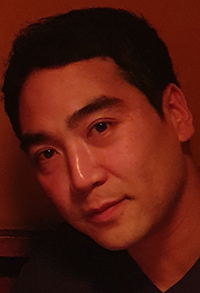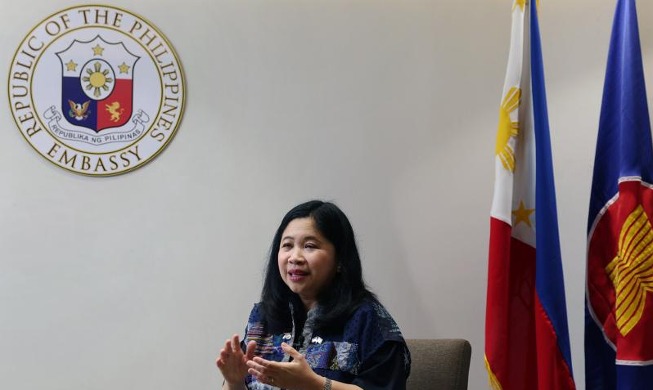
By Aiden J. Hwang
Adjunct professor of global music industry
Graduate School of Culture and Arts at Dongguk University
K-pop's multi-label system has emerged as a hot topic. This approach has music companies creating separate affiliates, or labels, to manage its artists more systematically by focusing on one artist or team as intellectual property (IP).
This strategy is common among major U.S. music labels like Sony or Universal Music. In Korea, entertainment management agencies like JYP Entertainment, Hybe and SM Entertainment set up the multi-label system.
American music companies that lead the global music industry own a variety of labels customized for their artists and the latter's genres. The companies' structure of artist management is quite different from that in Korea.
First, the subject of the contract is the artist, not the company. An artist signs an agreement with the manager, who supervises and represents the latter to connect with companies in doing radio promotions, album production, broadcast appearances, performances, media, events, marketing, distribution and publishing.
In K-pop, management agencies manage their acts under an arrangement totally opposite to that in America, namely the "in-house incubation and production" system. For example, an artist signs an exclusive contract with the agency, not a manager who works with external partners. The agency forms teams like those for development of new talent, training, music production, management, publicity, marketing and business so that each performs its own assigned task.
Because all the teams are part of one company and share a common goal and vision, their heads closely communicate and work together from the early stage of artist planning. This system is said to have higher efficiency in artist management and production of related content than the U.S. approach, in which the artist is the host with collaboration with external partners in all business operations.
K-pop companies have also gone a step further to create a unique multi-label structure. Under this system, they set up multiple labels at an agency, with each label in charge of an artist or team. A label aggressively and comprehensively manages an artist or team before the latter's debut by focusing on incubation and management, music production, style and choreography, merchandise design and sales, and performance planning.
Hybe's labels like Big Hit, Pledis Entertainment, Ador and Source Music each have an independent operating system, so they customize their management of acts or teams based on individuality and characteristics.
By focusing on the artists or team of each label, a company can secure IP at the same time. This system naturally boosts each act's personality and traits and most importantly, it moves up the time for releasing new songs and albums for more frequent music and album production, something that boosts diversity and intensity of artist activity. Because leading K-pop agencies are listed companies, they create a virtuous cycle in which their artists and teams regularly produce content, and this has a highly positive effect on the company's stock price.
In other words, this unique system incorporates K-pop's method of in-house incubation and production into the framework of the American multi-label system, which classifies labels by a genre's traits.
This approach has grabbed the attention of the global music industry. In an overseas extension of the Korean multi-label system, JYP Entertainment in 2020 achieved success in Japan with its localized girl group NiziU in collaboration with Sony Music Japan.
In March 2022, Lee Soo-man, founder and former chief producer of SM Entertainment, visited Riyadh, Saudi Arabia, for talks with key government figures including Princess Haifa bint Mohammed Al-Saud, who is deputy tourism minister; Minister of Economy and Planning Faisal bin Fadhil Alibrahim; and Deputy Minister of Culture Hamed bin Mohammed Fayez.
Lee's talks led to SM and the Saudi Ministry of Investment signing a memorandum of understanding on discovering and managing artists in the Arab country based on the K-pop development model. The plan was never implemented as Lee left SM.
Last year, Hybe worked with Geffen Records of Universal Music Group to launch "The Debut: Dream Academy," an audition program for girl groups at the Santa Monica-based IGA Studio near Los Angeles. The result was the June 28 premiere of the U.S. girl group KATSEYE with its first single "Debut."
The global act comprises people from a variety of nationalities and races under the K-pop system of artist incubation and production.
K-pop agencies began under the "one-person production system" and underwent changes in the process of creating a unique label system, combining the strengths of the American multi-label system with the Korean system of training and planning acts. With K-pop now firmly a music genre, this approach in other countries is producing new artists and teams from a diversity of backgrounds.
As a leading IP representing Korea, K-pop is spurring major changes on the global music market, offering the opportunity of sharing Korea's cultural IP around the globe. Starting with K-pop, the hope is that a wider diversity of Korean content such as cinema, theater, literature, poetry and traditional music is enjoyed by more people worldwide.
Since 2022, Hwang has taught the global music industry as a subject at Dongguk University in Seoul. His previous jobs include public relations manager at JYP Entertainment and journalist for the daily Joongang Ilbo.
Translated by Korea.net staff writer Yoon Sojung
